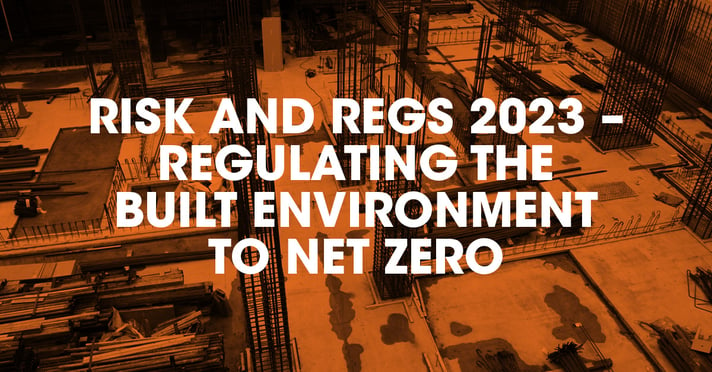Embodied emissions and legislation
Tim den Dekker, author of the proposed Part Z legislation that LABC Warranty has covered on this blog before, maintains the need for legislation to measure, and then control, embodied emissions.
Embodied emissions are in contrast to operating emissions – it is the carbon emitted by the process of construction, not the energy required to operate a building. As the UK replaces more of its energy production with renewable resources, the percentage of embodied emissions that make up the total emissions footprint of a building grows.
“Embodied emissions are significant, unregulated, and not shrinking,” said Tim. “There was a blip during the 2008 recessions, but it’s pretty much constant, and a lot of building materials are hard to decarbonise.
“Our peers in Europe, however, are ahead of us, with many already reporting, limiting, at least a clear policy signal that they plan to measure embodied emissions, many with an intention to drive them down with progressive lower limits. If the UK doesn’t act quickly, we will become and outlier.”
Embodied emissions must be reduced for the UK to meet its target of a 78% reduction in emissions. Part Z’s initial proposal is to measure embodied emissions from the construction industry, then begin limiting the worst offenders.
Stressing the support that Part Z has enjoyed so far, Tim notes the need for legislation to shape a new level playing field. “The metrics are clear, transparent, simple, and robust. They have industry support, they have some Westminster support, and we have a consensus on the problem.”
Effectively measuring energy performance
Hugh Dugdale meanwhile, focused the conversation back to the operation energy needs of our buildings.
In particular, he highlighted the divide between an Energy Performance Certificate (EPC) and the actual energy use and efficiency of a building.
“EPCs are not fit for purpose at the minute,” said Hugh. “They’re good for comparing buildings but the relationship between an EPC and the actual energy performance isn’t there.”
“We need more focus on the energy side of things, and more real data on how a building is performing. Because of the disconnect, we can’t drive the performance that we need.”
Speaking about the need for greater legislative impetus, Hugh described what he sees in the field. “Most of the change and drive that I see is not coming from legislation,” Hugh said. “It’s coming from organisations that have done things like make climate declarations.”
“They’re looking at funding from a council perspective, but a funding pot can disappear in as little as 13 minutes because it’s first come, first serve. Far too much is being left to chance over being strategically implemented, and a lot of the guidance that is out there is arbitrary.”
The lost decade
Gary Clark expressed an overall frustration with the direction of travel for legislation that would drive the UK to net zero.
“We’ve lost a decade, and I think it’s appalling,” said Gary. “Back in 2010 we had foresight, and everyone was getting ready to meet the 2016 and 2019 net zero targets. Then it was all taken away in the bonfire of regulations.”
“They said let’s carry on as we were, let’s kick the can along. That’s come full circle to where we are now, with the need to behind Part Z.
Speaking about where else the UK’s legislation is coming up short, he said, “We’ve had a performance credibility gap for years. By contrast, Neighbours is an Australian voluntary calculation scheme for the operational energy of a building, which became mandated. It has single-handedly reduced operation energy emissions in Australia by 70%.
“We need the same sort of legislation here, and that’s why we’re pushing hard for that kind of legislation to come in.”
The will to change
The panel also stresses that the level playing field is in the interest of private capital, as well. “There’s a lot of money from our pension funds desperate to invest in low carbon schemes. The money is there, it’s just not finding enough development,” said Tim. “If I was in government, I’d look at this and look at how we close the gap and create the projects to match that investment.”
Gary concurred with this assessment, saying “What better way to do this than a way that doesn’t require us to ask for more money from government, but one that uses money looking for a destination?”
As the panel stress, there is a will to change from the building industry, as evidenced by the wealth of support from builders and bodies for Part Z.
Part Z will be put to the government later this year, however Hugh Dougdale mentions that some as yet un-named regional authorities may have the appetite to start embracing the legislation themselves, regardless of central legislation.


Have your say